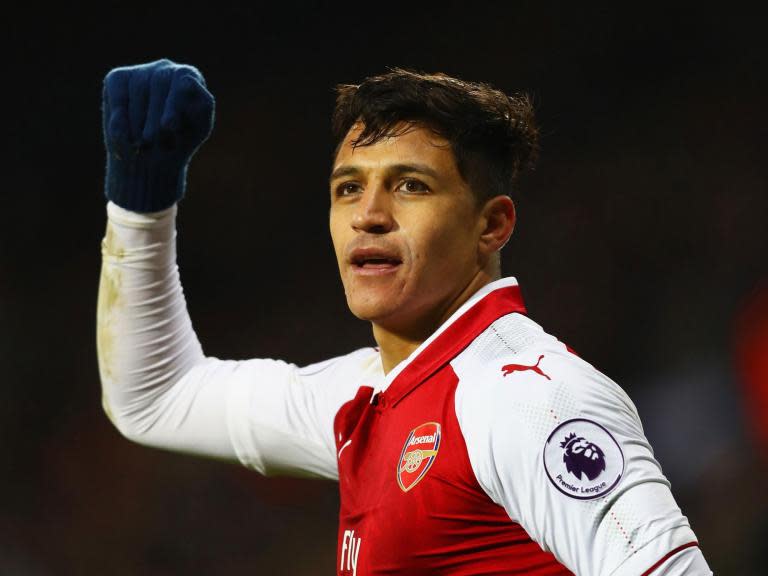Alexis Sanchez transfer is not essential but Manchester United are trying to send a message
There were two positions in Jose Mourinho’s Manchester United squad that appeared to need strengthening at the start of the transfer window – left-back and central midfield. Alexis Sanchez, in case you hadn’t noticed, cannot play either.
Maybe that’s irrelevant. Perhaps when you can sign Alexis Sanchez, you do sign Alexis Sanchez, though that maxim did not seem to influence the decision-making at the Etihad last week. Manchester City wanted him but not at any price. At no point was his arrival seen as essential.
Is Sanchez ‘essential’ to United, then?
Certainly, some backup to Romelu Lukaku is required. The Belgian has played every Premier League minute which he has been available for so far this season. He needs some sort of competition and relief. Zlatan Ibrahimovic is not in a position to supply either.
Sanchez would provide both, but at £400,000-a-week, on a four-and-a-half year contract, following a £20m signing-on fee, acquired in a player trade worth £30m, he would be an expensive ‘Plan B’.
The Chilean could hypothetically supercede Lukaku as Mourinho’s first-choice central striker but that in turn would mean demoting last summer’s £75m marquee signing to the bench. Mourinho is also unlikely to deviate from a lone-frontman formation, having seemed to settle on his tried, tested and trusted 4-2-3-1 set-up. So long as Lukaku is fit, it seems Sanchez will be part of the ‘three’ rather than the ‘one’.
In that ‘three’, he would most likely be deployed on the left flank and if he stops playing with sulk, he would undeniably be an improvement on the two players who have rotated in that position this season – Anthony Martial and Marcus Rashford. Is that improvement necessary, though?
Any suggestion that Martial might depart for Arsenal in exchange for Sanchez was rejected out of hand by United, who still think highly of a player that possesses the innate talent to reach Sanchez’s level one day. A manager who trusted that talent more may look to nurture it rather than drop it further down the pecking order.
The same applies to Rashford, who is not as naturally-gifted than Martial but, of the two, has been largely preferred so far this season. Even so, the 20-year-old is believed to be most at risk from Sanchez’s arrival. Once the Chilean comes, Rashford is likely to play second fiddle to either him or Lukaku, in a definitive backup role for the first time since his famous breakthrough.
Two young talents who have the potential to become among the most important players at United could, therefore, be sidelined for a superior yet costly 29-year-old. It is a debatable move, certainly not a crucial one.
For all the Robin van Persie comparisons of the last few days, it has been forgotten that the Dutchman’s presence in 2014, long after his brilliant debut year, contributed to Louis van Gaal’s decision to sell the young, flawed but well-regarded local academy product Danny Welbeck. It would be shame if the Sanchez deal, some way down the line, had a similar same side-effect.
Back to the original question though: is Sanchez ‘essential’ to United, then? Not in footballing terms, no – no more ‘essential’ than he was to City this time last week. He will not help United finish any higher than second in the league and reaching the quarter-finals of the Champions League would feel just as possible without him. They still need that left-back and central midfielder, by the way.
But perhaps it is not a question that we should naively ask in “footballing terms”, as if that would ever be the sole reason behind signing a football player. The main purpose of this transfer has been obvious from the moment it was mooted. It will be achieved as soon as a player that was Manchester City’s priority January target until a week ago scrawls his John Hancock on Manchester United-headed notepaper.
Power moves do not have to make perfect sense so long as they send the right message.



